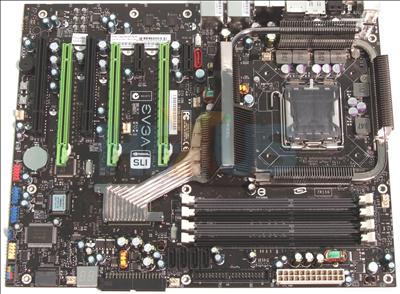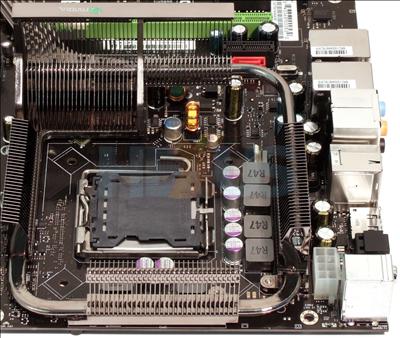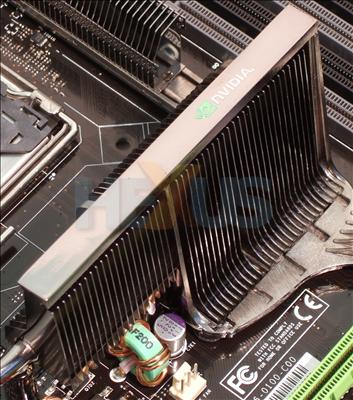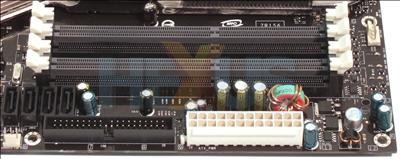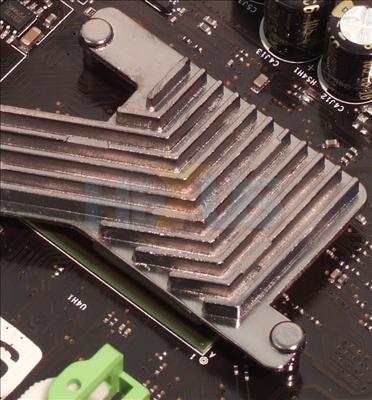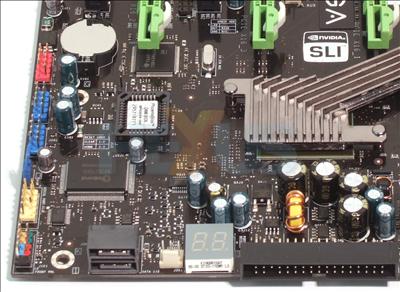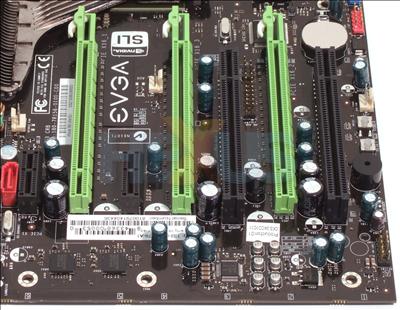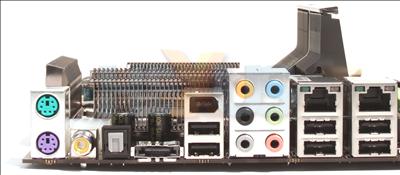EVGA 132 CK-NF79 layout and features
The final board in our triumvirate is the EVGA 132 CK-NF79, which is based on the NVIDIA nForce 790i Ultra SLI chipset. Being the newest chipset, it's also the most expensive, coming in at around £229.
On-board power and reset buttons and an on-board POST code display make tweaking and configuring your system much easier.
The layout is very good, with well-placed power and expansion connections, and there is an ample count of fan headers although not all of them are speed adjustable.
A slight criticism could be that the board extensively uses electrolytic capacitors over the newer, and arguably more durable, solid type.
The CPU socket is surrounded by a rollercoaster of heatpipes and heatsinks cooling the VRMs, although they're suitably low profile to not cause compatibility problems with larger CPU coolers.
The northbridge cooler is linked to the southbridge and VRMs via heatpipes and it features an array of aluminium fins.
Gunning for the absolute best performance at any cost, NVIDIA's nForce 790i Ultra SLI supports DDR3 memory at up to 2,500MHz. Support for EPP2.0 modules is also included, naturally.
The low-profile southbridge cooling and right-angled SATA connections ensure you don't run into compatibility issues when running three-way SLI.
In contrast to the Intel southbridges, NVIDIA's MCP still supports PATA natively so you shouldn't run into problems accessing CD/DVD drives using DOS/Linux-based disk-imaging software.
The main focus of the board has to be its three full-bandwidth x16
PCIe 2.0 slots, designed to power three-way SLI but equally capable
should
you opt for a RAID or soundcard. Two PCIe x1 connections and two PCI
slots round up the expansion options.
Rear connectivity is well catered for with PS/2 keyboard and mouse support, six USB 2.0, two Gigabit Ethernet, FireWire, eSATA and audio connectivity.
Both coaxial and optical S/PDIF digital audio outputs are available, although the on-board ALC888 isn't a version that supports DTS Connect or Dolby Digital Live, meaning there's no DTS or Dolby Digital-encoded multi-channel audio via the digital outputs.
A very good layout that took its cue from the erstwhile champ, nForce 680i SLI.



